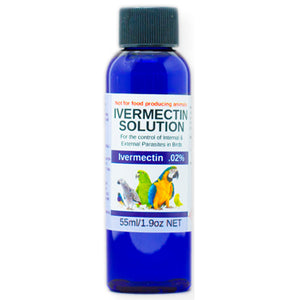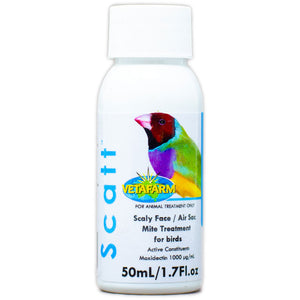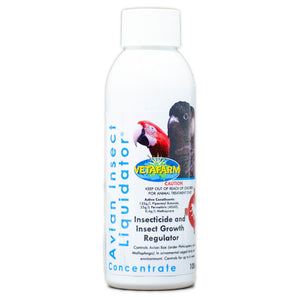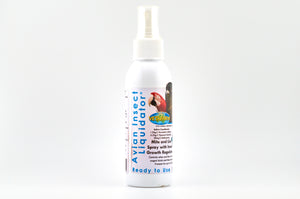Canker and how to treat
Canker (trichomoniasis) is probably the most common disease affecting our birds throughout the world.
The disease is caused by the TRICHOMONAD protozoa. There are different strains of the organism which vary widely in their ability to cause disease. Adult birds are often carriers - that is, they have the organism and spread it to other birds but look totally healthy themselves. The organism is commonly spread through food and water by carrier birds and passed from parents to their young. Overcrowding, poor hygiene and other stress factors result in greater spread of infection and debilitate birds so that latent infections become active and cause disease. Canker lesions often become secondarily infected by bacteria and make the disease much worse. In young birds poor growth and deaths are common. In older birds, weight loss and weakness or just poor performance are indicators that there is an underlying trichomonal infection. The common crop form of canker is the one most breeders are familiar with - the vomiting bird, the bird with froth at the beak, the bird slowly losing weight and eventually dying even though it appears to be eating. The crop form of canker usually results in constrictions forming in or around the crop, stopping the passage of seed and causing the bird to starve to death. A more sinister form of canker occurs in some cases, where the organism invades the liver and causes large cheesy abscesses full of organisms. These birds show no symptoms until the abscesses are well established and most of these birds die of liver failure.
Avian veterinarians can often find the carrier birds by doing a crop-wash and finding the organism under the microscope. However, the bird with liver abscess may escape detection. Because the disease is so common, breeders should look to treating their flocks to either eradicate the organism or stop it from entering their stock. Treat with an in water Anti-protozoal Medication. Unlike earlier treatments, these in-water medication will not cause infertility, neurological problems or reduce performance. In fact, these Medications have no reported side effects (even at excessively high dose rates) and can be used all year round including the breeding season when birds have young in the nest. We like to treat all birds 2 weeks after they have fledged the nest, this has stopped birds dying at 10 to 12 weeks old.




